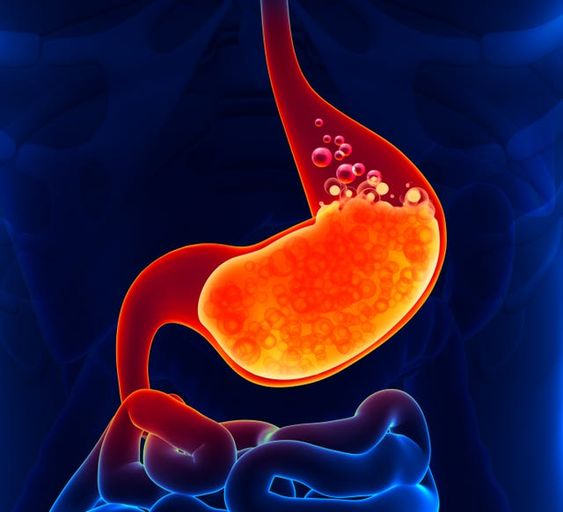Battling Acid Reflux: Acid reflux, also known as gastroesophageal reflux disease (GERD), is a common digestive disorder where stomach acid flows back into the esophagus, causing symptoms such as heartburn, regurgitation, and difficulty swallowing. It can be caused by various factors such as hiatal hernia, obesity, smoking, and certain medications.
8 Foods to Dodge
1. Chocolate — This beloved treat has a downside; chocolate contains caffeine, cocoa, and plant compounds that can all spark heartburn. Additionally, a chemical in cocoa loosens the LES, facilitating the escape of stomach contents into the esophagus.
2. Peppermint — Often known for soothing digestive woes, peppermint exacerbates acid reflux. It relaxes the muscles used for digestion, leading to a lax LES and subsequent leakage.
3. Fatty Foods — If fatty foods make you feel sluggish, you’re correct. They relax your LES and digest slower than other foods, leading to prolonged stomach acid production. Fried foods, prime rib, bacon, and whole milk dairy are prime offenders.
4. Spicy Foods — These intensify acid reflux in two ways: capsaicin slows digestion and irritates an already inflamed esophagus.
5. Acidic Foods and Drinks — Foods like citrus fruits, tomatoes, pineapple, and vinaigrette dressings are highly acidic, worsening the acidic environment of your stomach.
6. Garlic — Particularly raw, garlic is notorious for causing heartburn and stomach upset, making it problematic for those with acid reflux.
7. Onions — Raw onions stimulate acid production, increasing the risk of heartburn.
8. Alcohol, Caffeine, Carbonation — Alcohol and caffeine relax the LES, while carbonation expands your stomach, pushing contents up against the LES. This makes soda, coffee, tea, and alcoholic drinks significant triggers.

Top 8 Foods That Help Combat Acid Reflux
1. Vegetables and Non-Citrus Fruits — Most fruits and vegetables, except for the “bad” ones listed, help reduce stomach acid. They are low in fat and sugar and packed with fiber and nutrients. Opt for bananas, melons, broccoli, asparagus, and green beans.
2. Whole Grains — High-fiber whole grains like brown rice, oatmeal, and whole-grain bread can alleviate symptoms by absorbing stomach acid.
3. Lean Protein — Low-fat protein sources such as chicken, seafood, tofu, and egg whites reduce acid reflux symptoms. Best prepared baked, broiled, poached, or grilled.
4. Beans, Peas, and Lentils are fiber-rich and packed with protein, vitamins, and minerals, making them great for acid reflux management.
5. Nuts and Seeds — Almonds, peanuts, chia, pomegranate, and flaxseeds are beneficial as they provide fiber and nutrients and may help absorb stomach acid.
6. Yogurt — Soothing to the esophagus, yogurt also offers probiotics that support digestive health and is a good protein source.
7. Healthy Fats — Necessary for the body, healthy fats like those found in avocados, olive oil, walnuts, and soy products are less likely to trigger symptoms.
8. Ginger — With anti-inflammatory properties, ginger is a historical remedy for gastrointestinal issues. It can be added to dishes or made into tea.
Quick Tips for Managing Acid Reflux
– Vegetables — Naturally low in fat and sugar, good options include green beans, broccoli, asparagus, cauliflower, leafy greens, potatoes, and cucumbers.
– Ginger — Promotes gastric emptying and can be added to recipes or consumed as tea, but tested in small amounts initially.
– Oatmeal — A high-fiber whole grain that absorbs stomach acid and reduces reflux risk. Other high-fiber choices include whole-grain bread and brown rice.
– Non-Citrus Fruits — Melons, bananas, apples, and pears are nutrient-rich and less likely to cause reflux than acidic fruits like oranges.
– Lean Meats and Seafood — Low-fat options like chicken, turkey, fish, and seafood are less likely to trigger reflux. Try them grilled, broiled, baked, or poached.
– Egg Whites — Low in fat and high in protein, egg whites are preferable over egg yolks or fried eggs, which can trigger symptoms.
Here’s a more accurate and refined table
| Foods to Avoid | Foods to Eat |
|---|---|
| 1. Chocolate | 1. Vegetables and Non-Citrus Fruits |
| 2. Peppermint | 2. Whole Grains |
| 3. Fatty Foods | 3. Lean Protein |
| 4. Spicy Foods | 4. Beans, Peas, Lentils |
| 5. Acidic Foods and Drinks | 5. Nuts and Seeds |
| 6. Garlic | 6. Yogurt |
| 7. Onions | 7. Healthy Fats (e.g., avocados, olive oil) |
| 8. Alcohol, Caffeine, Carbonation | 8. Ginger |
Takeaway – Incorporating these foods into your diet can help neutralize stomach acid and manage acid reflux symptoms, though individual responses may vary. For persistent issues, seek medical advice.
Do follow for more https://notionopia.com/category/health/ https://notionopia.com/
